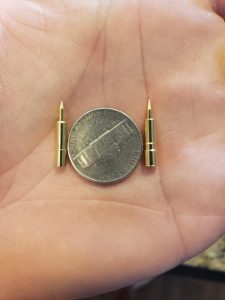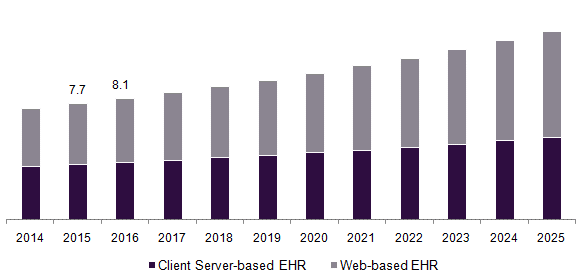The last time health care changed in this country was now a decade ago. It’s back on the table.
But there’s something different this time.
Doctors, hospitals and researchers got smarter. Or, I should say, they’re working with smarter systems.
Technology has made enormous leaps since 2010, when Democrats last pushed for a new health system. The focus then was on getting more people insured.
This time, however, a Biden Administration would also likely include getting the health care industry successfully integrated into the 21st century.
But even if Biden doesn’t get a seat at the Resolute Desk, this is an emerging idea already happening.
The digitalization of health care has been going on for years. With doctors able to share more case studies and diagnoses with each other across the planet, individual care has gotten better.
But there’s so much more to do in this industry that is inevitable.
Take artificial intelligence, as an example.
AI is already breaking ground on just about every aspect of our lives, from cars to social media algorithms. It shouldn’t come as a surprise it has a role in health care too.
And with the boom we’ve seen in workplace management software and technologies built around telecommuting even in just the last year, that too is on the table for the health industry.
While I acknowledge this is a large subject, there are two key ideas (and companies) I have at the top of the list for early beneficiaries of the incoming push for digitalization.
Who Needs Paper?
As we’ve seen in everything from publishing to accounting, no one needs paper anymore. So, why would doctors?
iPads in hand, an overworked doctor doesn’t have to dig through or wait for someone else to dig through dusty old filing cabinets between patients.

Grab a piece of paper and pen to write this down…
Because you’re about to see the name and ticker symbol of the ONLY 5G STOCK every investor should own.
You can get the name and ticker of this company right here, no strings attached. But you better act fast…
Because the Federal Communications Commission, the government agency in charge of 5G, just scheduled a major announcement that would send shares soaring once announced.
Don't miss out. Click Here to Get #1 5G play for 2020 before the next market close.
But with the integration of cloud storage, this is becoming even more enticing for clinics and small hospitals to adopt.
In fact, this is one of the fastest growing segments in all of health care.

The electronic health records (EHR) industry has already been growing at an astonishing clip. With cheaper access to cloud storage and more willingness to cut costs on onsite data storage, the move to web-based EHRs are spurring an even faster growth here in 2020.
One company stands out in this field: Allscripts Healthcare Solutions Inc. (NASDAQ: MDRX).
Allscripts is a one-stop shop for hospital administrators, private doctors and clinic operators to make the switch. It leads in this field. But its size is what makes it a truly unique emerging opportunity.
The company has a market cap of just $1.9 billion. The size of the EHR industry is already pushing $20 billion even before major legislative efforts are made to mandate electronic records.
There’s a huge amount of room for this one to grow.
The Global Effort on Diagnoses
Just keeping track of patients and their cases is great and all. But what if every doctor in the world could have access to all of those historical diagnoses and treatments to find the right approach to his own patient’s situation?
First of all, that would be messy. Doctors don’t typically have weeks or months to dig through hundreds or thousands of case studies.
But you know what could do that in seconds rather than months?
A computer. Or more specifically, several thousands of computers running artificial intelligence software designed to find similar cases, match genetic backgrounds of the patients and come up with the most effective treatment regimen to use.
This could be one of the largest advances in health care since penicillin.
While we don’t know Pfizer used AI to come up with its COVID vaccine that’s been rallying markets, we do know that Pfizer is on the forefront of this technology, incorporating it into its own drug development.
Of course, there’s a better way to play this breakthrough. Companies like Health Catalyst Inc. (NASDAQ: HCAT) facilitate the software and underlying technology that allows large drug developers and doctors alike to electronically and automatically scour all human health histories to diagnose and develop groundbreaking drugs and treatments.
This is another small, often missed company on the forefront of health digitalization. And one I will continue pay close attention to as the push to modernize the industry enters the spotlight.
These two aren’t going to be alone in this emerging field. But they are the two right at the top of the list. And now is the perfect time to stake your claim.